Full Members
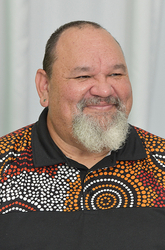
Professor Adrian Miller
Professor Miller is of the Jirrbal people of North Queensland and is the Deputy Vice President of Indigenous Engagement and BHP Chair in Indigenous Engagement at CQUniversity Australia. His previous appointment was Pro Vice-Chancellor Indigenous Leadership at Charles Darwin University. Other previous positions include Academic Director of Indigenous Education and Research and Professor of Indigenous Research at Griffith University, Professor and Head of School at Southern Cross University, Founding Head of the Department of Indigenous Studies at Macquarie University and Deputy Head of School at James Cook University. During the past 24 years in higher education, his experience has been in management, leadership, academic program development, teaching and research. He has a research track record in competitive grants with the Australian Research Council and National Health and Medical Research Council grant schemes totalling around $20M. He has a strong interest in applied research and has twice been awarded the Australian College of Educators Teaching Award. Professor Miller has strong leadership experience and a proven capacity for achieving positive outcomes for Indigenous communities in health and education.
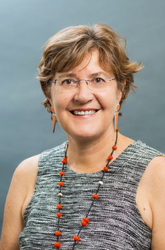
Professor Janya McCalman
Professor Janya McCalman is a Professorial Research Fellow in Indigenous Health at CQUniversity. She is internationally recognised for her extensive research on the interactions between Aboriginal and Torres Strait Islander Australians with schools, workplaces, health services and other community contexts, which enable resilience, empowerment and well-being. She is recognised for her diverse multi-method research with Aboriginal and Torres Strait Islanders partners over the last 15 years, including in Aboriginal mental health, social and emotional wellbeing, youth health, maternal and child health, health services research, and implementation research. She has led systematic literature reviews, participatory action research, grounded theory, and impact evaluation research projects which seek to inform improvements in resilience, empowerment-based health and wellbeing, and the implementation of health programs and services. Her PhD was conferred in 2013; for this, she won the Dean's Award for Research Higher Degree Excellence. She supervises and mentors several Aboriginal and non-Aboriginal research students. Given she is at an early career stage, her ability to report and publish research is prolific; outputs include 43 peer-review papers; 1 book, 4 book chapters; 22 other publications; and 31 conference presentations. She has been successful as Lead/Chief Investigator on 16 grants, including two fellowships and three competitive grants (NHMRC ID: APP1076774; NHMRC 1078927; ARC IN150100011); contributing to $9.7m funding. She has received JCU performance awards for external income and publication outputs. She has also contributed to the design and facilitation of training workshops with international mental health leaders.
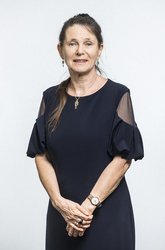
Professor Alexandra Y Aikhenvald
Alexandra Y. Aikhenvald (PhD 1984, Doctor of Letters 2006) is an Australian Laureate Fellow, Foundation Director of the Language and Culture Research Centre at James Cook University (2009-2021), Consultant for Oxford English Dictionary, and is currently Professorial Research Fellow at Jawun Research Centre, CQUniversity. She is a Fellow of the Australian Academy of the Humanities, an Honorary Member of the Linguistic Society of America, and a Foreign Member of Academia Europaea. She is the author of more than 20 monographs, in addition to several dozen edited and co-edited volumes. She has devoted much of her academic endeavour to the study of languages of the Amazon region of Brazil. She is a major authority on the languages of the Arawak family from northern Amazonia and the Ndu languages of the East Sepik Province in northern Papua New Guinea. She has written grammars of Bare (1995) and Warekena (1998), plus A grammar of Tariana, from Northwest Amazonia (CUP, 2003). Her further field of expertise lies in the Sepik area of Papua New Guinea, with her The Manambu language of East Sepik, Papua New Guinea (OUP, 2008), in addition to essays on various typological and areal topics. She is the editor of The Oxford Handbook of evidentiality (OUP, 2018) and co-editor, with R. M. W. Dixon, of The Cambridge handbook of linguistic typology (CUP, 2017). Prof Aikhenvald's other major publications include Classifiers: A typology of noun categorization devices (OUP, 2000), Language contact in Amazonia (OUP, 2002), Evidentiality (OUP, 2004), Imperatives and commands (OUP, 2010), Languages of the Amazon (OUP, 2012), The art of grammar (OUP, 2014), How gender shapes the world (OUP, 2016), Serial verbs (OUP, 2018), The web of knowledge: evidentiality at the cross-roads (Brill, 2021), and A Guide to genders and classifiers (OUP, forthcoming). Her recent general interest book, I saw the dog: how language works (Profile books, 2021), highlights the importance of language for understanding indigenous knowledge and other aspects of life.
Professor Chris Doran
Professor Chris Doran holds a Bachelor of Economics (Honours) and a PhD in Health Economics and is a recent graduate of the Australian Institute of Company Directors. His main area of research is mental health, focusing on substance use and suicidal behaviour. Prof Doran's research has contributed to the field of health economics and strengthened the evidence base for effective policy action. In recent years, his focus on priority setting has been complemented by developing tools and frameworks to facilitate translational research. His translational research has contributed to the development, implementation and evaluation of national and international substance abuse and mental health policies. A major strength of Prof Doran's research is the network of collaborations he has established. Evidenced by his research output, Prof Doran has collaborated extensively with academics, consumer groups, practitioners and policymakers in building capacity in the knowledge, use and translation of health economics. Due to his globally recognised research into the health economics of mental health and substance abuse, he has developed strong links with the World Health Organisation and the United Nations Office on Drugs and Crime, leading to invited presentations, collaborative manuscripts, commissioned research and a sabbatical placement with the World Health Organisation in Geneva. His research projects are multi-disciplinary, and multi-institutional with a strong focus on collaboration and capacity building. For example, as CI on APP351558, he worked closely with members of the steering and advisory committees representing 5 universities, state and federal government organisations, non-government organisations, community and Indigenous experts and the World Health Organisation.
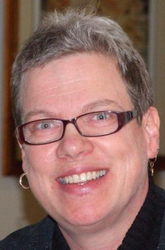
Professor Jenni Judd
Professor Jenni Judd's career focus is to contribute to the improvement of health and educational outcomes for the Australian population, including Aboriginal and Torres Strait Islander and Cultural and Linguistically Diverse peoples. She has extensive practical and applied research experience in various environments, including urban, rural, tropical and remote Indigenous communities and with health care providers in the NT, WA, QLD and NSW. Her research has focused on capacity building and changing practice and policy in mental health, chronic disease management, health promotion and public health practice in Primary Health care providers, pandemic influenza, Hendra virus risks and equine vets, and Strongyloidiasis in Indigenous communities. Much of Prof Judd's health and education experience was in the Northern Territory in tropical urban, rural and remote settings and has broadened to research with Aboriginal Medical Services and communities in NT, QLD, WA and northern NSW. From 1992-2007 she worked in health promotion, policy development, research, evaluation and training, management of health promotion and public health services, and as an applied researcher. Prof Judd is acknowledged nationally and internationally for her leadership in health promotion and Indigenous health. This is evidenced by her leadership in the Australian Health Promotion Association and from working in partnership with Indigenous practitioners in the International Network of Indigenous Health Promotion Professionals (INIHPP). Prof Judd has contributed to coordinating Indigenous workshops at the Annual Australian Health Promotion conferences since 2008, the Population Health Congresses (2008 and 2020), and the International Union of Health Promotion and Education Conferences in 1997.
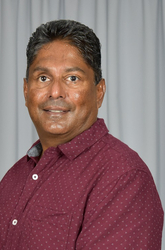
Dr Mani Naiker
After completing his Bachelor of Applied Science (honours) at the University of Western Sydney, Dr Mani Naiker completed his PhD studies at Charles Sturt University. Upon completion, he returned to his native Fiji Islands and joined the chemistry department at the University of the South Pacific as a lecturer in chemistry. Between Mani's academic positions in Fiji and later at Federation University Australia, he gained a multitude of experience and knowledge through being employed within commercial analytical laboratories in various roles. In 2017, he joined the Australian Catholic University (Brisbane Campus) as a lecturer in science before taking up his current role as a lecturer in chemistry at CQUniversity in Rockhampton. Mani has a strong background and expertise in science education-based research and in biochemical characterization of naturally derived compounds that have been shown to have useful biological activity. He also has extensive knowledge and expertise in using high-end analytical techniques and instruments, which has been beneficial across a range of ongoing and future research projects at CQIRP. Mani's research has mainly focused on the phytochemical profiling and nutrient determination in natural matrices to screen for those that have health-benefiting properties and as such, can be classified as functional (health-benefiting) natural resources.
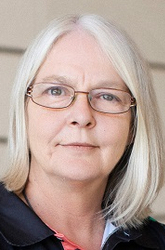
Dr Vicki Saunders
Dr Vicki Saunders is a Gunggari woman from South West Queensland and has a strong interest in building Indigenous ways of knowing, doing and being within health research contexts, and in promoting the value of arts-informed, Indigenous and poetic research approaches.
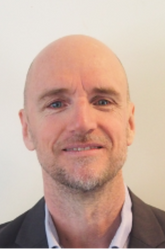
Dr Henry Boer
Dr Henry Boer has extensive experience in applied research, strategic planning and project management. He has co-led the design and delivery of multiple research projects, strategies and policy reforms, and more recently program evaluations. Henry's research interests are broadly in public policy and governance, including stakeholder engagement and decision-making. He is currently applying these approaches to evaluating health policy and governance at different scales and to reconciliation initiatives.
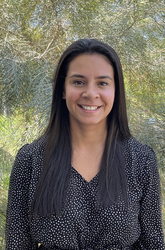
Ms Madeline Stewart
Madeline Stewart is the Project Officer (Research) with CQUniversity's Indigenous Engagement Division. She is a former teacher-turned-researcher with a passion for community-led research. Her heritage includes connections to the Birri gubba, Juru people (Burdekin area), and Aotearoa (New Zealand). Madeline's current role involves evaluating the impact of the Police Citizens Youth Club (PCYC) program in Woorabinda. Madeline also provides support to the Jawun Research Centre. She loves spending time in the community, organising workshops and interviews, and generally collaborating with the many diverse stakeholders.
Her Project Officer role showcases her project management and stakeholder engagement skills and involves managing smaller contracts and general project administration. She particularly enjoys collaborating with a small team of experienced and passionate researchers – especially when it all starts to come together and themes develop.
Madeline is nearing completion of a Master of Educational Leadership at the Australian Catholic University and hopes to further develop her skills in research and one day lecture in education.
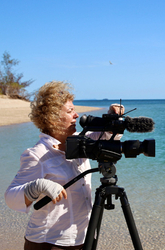
Dr Jan Cattoni
Jan's professional career spans several disciplines, including filmmaker, academic and paediatric intensive care nurse.
Jan has woven these disciplines into a hybrid career in ethical filmmaking, often working with vulnerable individuals and marginalised communities. Jan’s broadcast credits are as a writer-director of short drama, documentary and factual series for ABC, SBS and RTE (Ireland).
After moving back to north Queensland from Brisbane a decade ago, Jan has worked in many remote locations mentoring emerging Indigenous filmmakers and co-creating content in partnership with community groups. In this environment, Jan has been able to explore participative filmmaking, community scripting and improvisation, and as a result, produced a large amount of broadcast & commissioned content. This work has attracted numerous awards. Jan has a Doctor of Visual Arts from Griffith Film School and teaches in Digital Media at CQUniversity, Cairns.
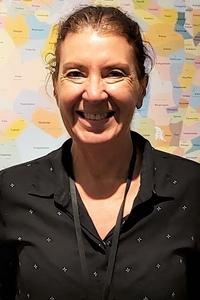
Dr Sandra Campbell
Dr Sandra Campbell is an Aboriginal public health researcher from Mandandantji country in southwest Queensland. Dr Campbell is currently working at Charles Darwin University, leading the data team for the Australian Nurse Family Partnership Program (ANFPP) National Support Service. Dr Campbell is an Adjunct Senior Research Fellow with the Centre for Indigenous Health Equity Research. She has a professional background in nursing and midwifery, and her quantitative and qualitative research skills are built on a foundation of providing clinical care and health promotion in Aboriginal communities in Queensland, the Northern Territory and Victoria. Dr Campbell's PhD studies used epidemiological methods to elaborate on the importance of improving the health of Indigenous women of childbearing age before and between pregnancies to impact the immediate and long-term health of the next generation. Her clinical and research experience is focused primarily on Indigenous primary health care and primary health care services. Since 1999, she has led collaborative Indigenous community-based health research projects to successful completion. Her research interests have included maternal and child health, adolescent health, including mental health, intergenerational health and chronic disease prevention, tobacco control, and health service and workforce research. Since 2013, Dr Campbell has been an Assessor for NHMRC Indigenous Health grant application rounds as an External Assessor and Projects Grants Review Panel Member. She regularly peers reviews academic manuscripts: in the past 5 years, she has accepted invitations to review from 13 national and international journals. Dr Campbell has been a member of Apunipima's Research Governance Committee since 2014, and throughout 2017, she was a member of the James Cook University HREC.
Joel Johnson
Joel Johnson is a PhD student working closely with Dr Mani Naiker. Mr Johnson focuses on functional foods (foods that provide health and nutritional benefits) and their bioactive compounds. He is also interested in studying the chemical basis behind traditional Australian medicinal plants utilised by Indigenous people.
